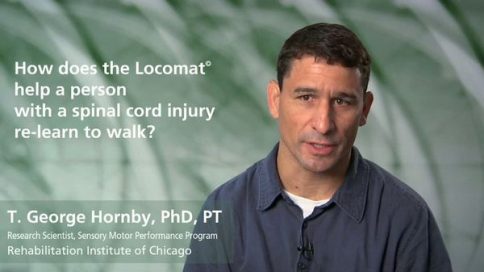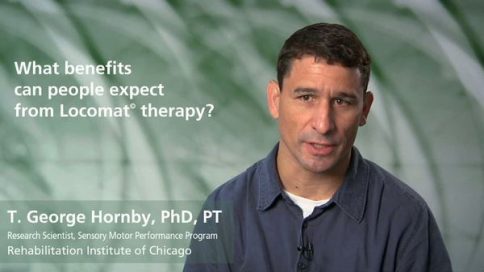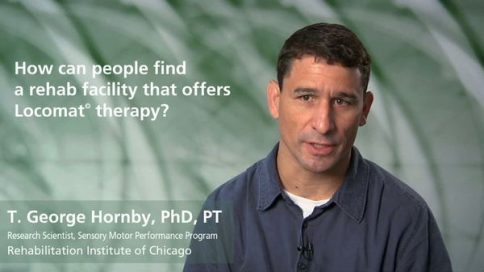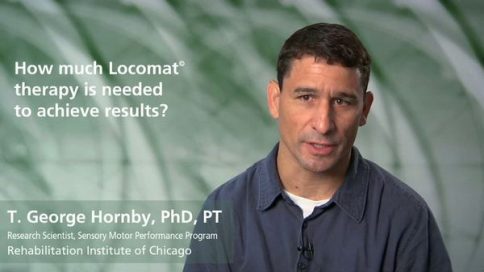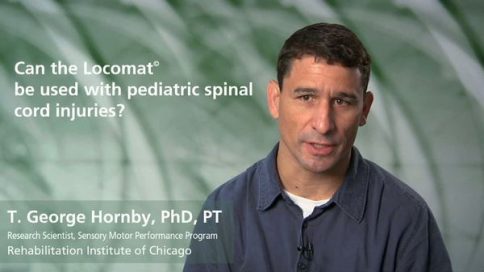What is the Lokomat®? - T. George Hornby, PhD, PT
|
|
What is the Lokomat®? |
|
T. George Hornby, PhD, PTResearch Scientist, Sensory Motor Performance Program, Rehabilitation Institute of Chicago |
||
| Read Bio | More Videos by T. George Hornby | |
|
Share |
||
Transcript
So the Lokomat is a robotic assistive device that operates in conjunction with a treadmill, and on that treadmill, people are supported over the treadmill by a large kind of harness, like a parachute harness. And they're suspended, so they don't fall. The Lokomat will come behind the patient, and align to their hips and their knees, and they're motors in this device that are timed with the treadmill that allow the person to engage in this stepping-like behavior when it's really difficult for them to move. It's called an exoskeleton actually, so it's like this large kind of robotic suit that your legs and your pelvis kind of wears, and it operates to allow you to actually take these steps, it moves your legs for you. Of course, you're supposed to try to move, but individuals with spinal cord injuries, especially early, just don't have enough strength to accomplish those movements on their own. So this helps them kind of facilitate that movement.
Show Less|
|
||
add
What is the Lokomat®? |
||
T. George Hornby, PhD, PTResearch Scientist, Sensory Motor Performance Program, Rehabilitation Institute of Chicago |
More Videos by T. George Hornby | |
| Transcriptadd | share | |
So the Lokomat is a robotic assistive device that operates in conjunction with a treadmill, and on that treadmill, people are supported over the treadmill by a large kind of harness, like a parachute harness. And they're suspended, so they don't fall. The Lokomat will come behind the patient, and align to their hips and their knees, and they're motors in this device that are timed with the treadmill that allow the person to engage in this stepping-like behavior when it's really difficult for them to move. It's called an exoskeleton actually, so it's like this large kind of robotic suit that your legs and your pelvis kind of wears, and it operates to allow you to actually take these steps, it moves your legs for you. Of course, you're supposed to try to move, but individuals with spinal cord injuries, especially early, just don't have enough strength to accomplish those movements on their own. So this helps them kind of facilitate that movement.

